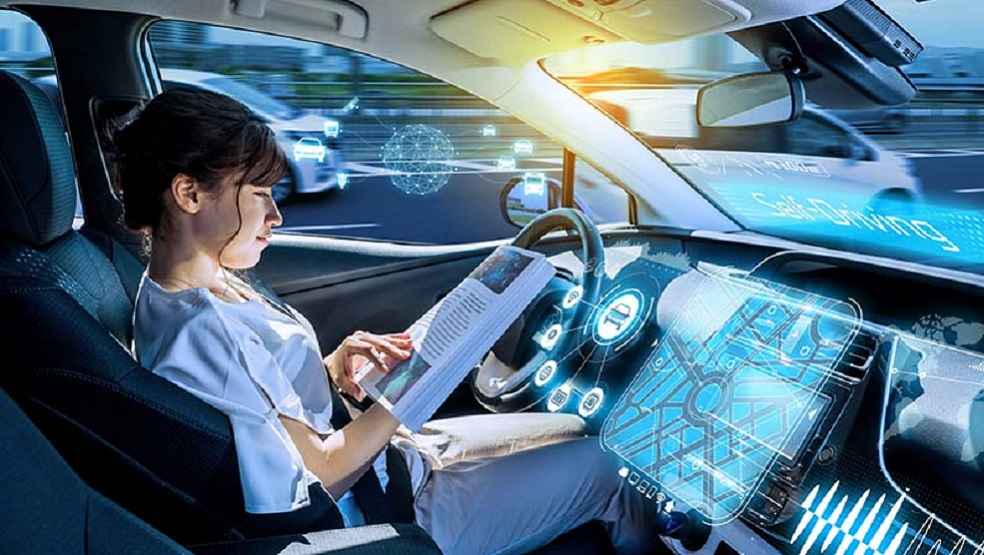The ascension of Artificial Intelligence (AI) foundation models is catalyzing a new epoch of intelligence within China’s auto sector. Revelations from the recently concluded 2023 World Intelligent Connected Vehicles Conference (WICVC) held in Beijing from Sept. 20 to 24, delineate a bold narrative in automotive innovation.
Xin Guobin, the vice minister of industry and information technology, disclosed that 42.4% of passenger car sales within China during the first half of 2023 featured combined driver assistance, signifying a stride towards Level 2 autonomous driving.
Han Zhao, leading the China Association of Automobile Manufacturers, reflected on the nascent stages of automatic driving, which primarily hinged on the amalgamation of sensors and deep learning algorithms. This initial phase encountered hurdles like a pronounced dependency on high-precision maps and associated high costs.

The genesis of 2023 witnessed a spirited surge of generative AI technology, pivoting autonomous driving towards an end-to-end foundation model, as per Han’s narrative.
Chinese automotive enterprises, navigating this novel avenue, are employing foundation models to tackle the hurdles posed by automatic driving. An influx of data is nurturing the growth of these models, honing algorithms, and consequently, amplifying the intelligence quotient of automobiles.
Industry visionaries forecast a grand-scale deployment of general artificial intelligence within the automotive realm in the near future, with a pronounced focus on autonomous driving and intelligent cockpit domains, earmarked for superior performance and heightened accurate perception.

Li Zhenyu, Baidu’s Vice President, underscored the transformative trajectory witnessed within the intelligent connected vehicles sector over the preceding year, with unmanned driving making strides on China’s intricate urban thoroughfares.
April 2022 marked a milestone with Beijing pioneering the pilot operation of unmanned passenger vehicles. Fast forward to a year later, Baidu’s ‘Apollo Go’ has notably broadened its operational domain, with a stark increase in orders and fleet size. By June 30 this year, ‘Apollo Go’ had rolled out over 3.3 million services to the public.
The triad of algorithms, computing prowess, and data are the cornerstones of merging AI foundation models with the automotive industry. A burgeoning number of Chinese automotive firms are channeling focus towards software and algorithmic development, with a projection of substantial research and investment funneled into intelligent networked technology.

As July commenced, data revealed that Xpeng, a budding New Energy Vehicle (NEV) startup, saw its Navigation Guided Pilot (NGP) amassing a staggering 31.6 million kilometers in mileage, with a user penetration rate of 84.32%.
The industry-wide consensus alludes to a symbiotic relationship between the nascent AI foundation model technology and the brisk advancement of intelligent connected technology, poised to expedite the growth of intelligent connected vehicles. Over the last biennial, a sizable investment flowed into the AI foundation model domain from numerous Chinese automobile corporations.
The trajectory of China’s intelligent connected automobile industry has exhibited remarkable momentum. The zeitgeist of technological innovation is pulsating stronger, mirrored in the mass production and installation of intelligent driving systems and large computing power chips. Concurrently, a spectrum of car manufacturers are venturing into the development of conditional and highly autonomous driving models, alongside a swift pace in constructing an intelligent road transformation and cloud control infrastructure platform.

Recent data from the WICVC unveiled that China has inaugurated over 20,000 kilometers of intelligent connected vehicle test roads, registering a cumulative test mileage exceeding 70 million kilometers. Furthermore, the systematic progression of autonomous taxis, trunk logistics, and unmanned delivery across diverse scenarios underscores China’s steadfast march towards a smart mobility landscape.
AUTO TECH | Waymo Secures CPUC Permit:100K San Franciscans Ready for Autonomous Rides





